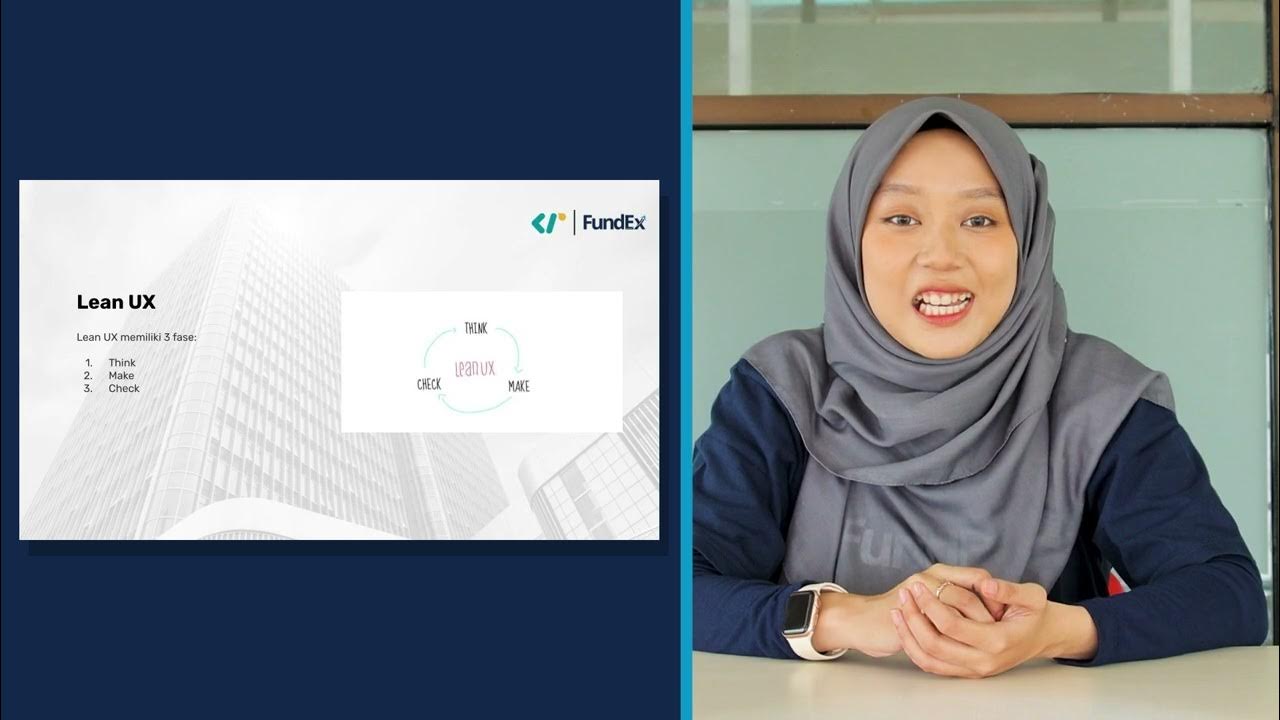5 Habits to Accelerate Your Career In UX
Summary
TLDRThis video script emphasizes five key habits for boosting a career in UX design: practicing critical thinking, being well-prepared with thorough research, focusing on relationship building, embracing change management, and thinking beyond design to align with business goals. It also introduces 'gravitas' as a unifying habit, encouraging designers to contribute meaningfully to the business's bottom line and take their work seriously.
Takeaways
- 🤔 Cultivate critical thinking in UX design to avoid assumptions and make informed decisions.
- 🔍 Prioritize research as a continuous habit to enrich decision-making and demonstrate preparedness.
- 🤝 Focus on building relationships and partnerships for effective communication and collaboration.
- 🛠 Embrace change management as a key discipline to drive design maturity and organizational improvements.
- 🎯 Aim to be a change agent, understanding strategic timing and diagnosing issues for impactful design.
- 📈 Think beyond design to align user needs with business goals for meaningful outcomes and KPIs.
- 💼 Develop a business mindset to connect design hypotheses with organizational objectives and strategies.
- 🧐 Practice gravitas to be taken seriously, contribute meaningfully, and demonstrate confidence in your work.
- 📚 Continuously learn about business to transition from a design team to a wider organizational team.
- 🏆 Pursue a balance between advocating for users and contributing to the business's Northstar and OKRs.
- 🚀 Invest in change management skills to become a design leader who shapes design organizations and outcomes.
Q & A
What are the key habits mentioned in the transcript that can boost one's career in UX design?
-The key habits mentioned are practicing critical thinking, being prepared for more than you think, focusing on relationships, being a change agent, thinking beyond design, and developing gravitas.
Why is critical thinking considered a crucial habit for UX designers?
-Critical thinking is crucial because it helps UX designers question assumptions, make informed decisions, and avoid taking requests from stakeholders at face value without proper research.
What does the speaker suggest as a method to improve critical thinking skills in UX design?
-The speaker suggests honing critical thinking by practicing it proactively, using tools like Socratic thinking, and asking meta-questions to put puzzle pieces together for better decision-making.
How does being prepared for more than you think you should be contribute to career progression in UX design?
-Being prepared contributes to career progression by ensuring that designers have an agenda, know the outcomes, and can enrich their decisions with enough signals, which makes them appear proactive and trustworthy.
What is the importance of focusing on relationships in UX design?
-Focusing on relationships is important because UX design often faces challenges due to communication issues and misunderstandings. Building partnerships can help in making meaningful changes and being perceived as a team player.
What does the speaker mean by 'being a change agent' in the context of UX design?
-Being a change agent means being involved in change management, which includes understanding strategic timing, diagnosing issues, and creating action plans to improve design maturity within an organization.
Why is thinking beyond design important for a UX designer's career?
-Thinking beyond design is important because it requires designers to balance user needs with organizational goals, ensuring that their work results in meaningful outcomes and contributes to business objectives.
What is the role of gravitas in a UX designer's career?
-Gravitas plays a role in making a designer appear serious and capable, contributing to the bottom line, and being taken seriously by stakeholders, which can lead to more opportunities and career growth.
What is the speaker's approach to discussing these habits in the video?
-The speaker's approach is to share these habits as transformational for their career, attempting to discuss each habit within one minute to make the content concise and engaging.
How does the speaker emphasize the importance of research in the context of being prepared?
-The speaker emphasizes the importance of research by stating that it's a habit and a discipline that should be employed before making decisions, enriching the designer's ability to make informed choices.
What feedback did the speaker receive during a job interview that made them reflect on their approach to UX design?
-The speaker received feedback that they were focused too much on business and not enough on the user, which made them reflect on the importance of balancing user needs with business outcomes.
Outlines

Dieser Bereich ist nur für Premium-Benutzer verfügbar. Bitte führen Sie ein Upgrade durch, um auf diesen Abschnitt zuzugreifen.
Upgrade durchführenMindmap

Dieser Bereich ist nur für Premium-Benutzer verfügbar. Bitte führen Sie ein Upgrade durch, um auf diesen Abschnitt zuzugreifen.
Upgrade durchführenKeywords

Dieser Bereich ist nur für Premium-Benutzer verfügbar. Bitte führen Sie ein Upgrade durch, um auf diesen Abschnitt zuzugreifen.
Upgrade durchführenHighlights

Dieser Bereich ist nur für Premium-Benutzer verfügbar. Bitte führen Sie ein Upgrade durch, um auf diesen Abschnitt zuzugreifen.
Upgrade durchführenTranscripts

Dieser Bereich ist nur für Premium-Benutzer verfügbar. Bitte führen Sie ein Upgrade durch, um auf diesen Abschnitt zuzugreifen.
Upgrade durchführenWeitere ähnliche Videos ansehen

03 UI/UX on Digital Product

UX vs Design Thinking vs Design Sprint

Project-Based Internship FundEx - UI/UX Designer - Company Coaching Video 1

Konsep DESIGN THINKING - Part 1 - Overview

Become Mentally & Emotionally Strong! 🧘♂️ | Success Mindset ft. Avinash Kumar #seekho

5 steps to improve your UI design
5.0 / 5 (0 votes)
